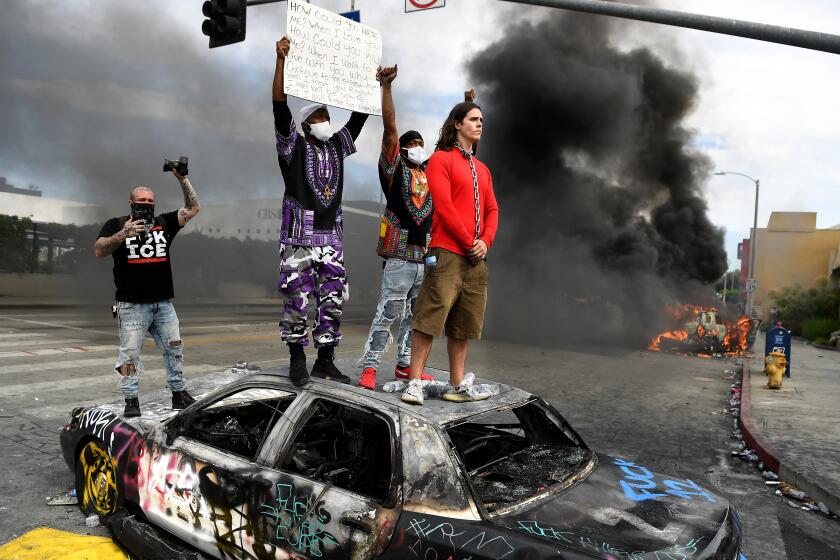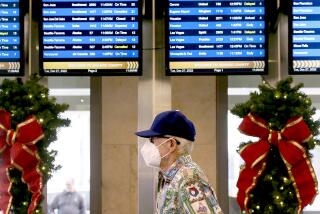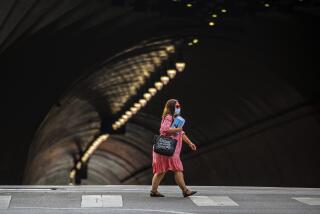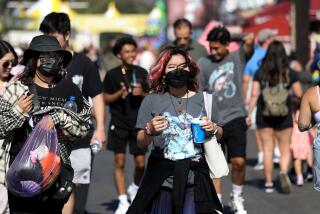A ‘lifetime of stress’ in black communities at tipping point as coronavirus, protests collide
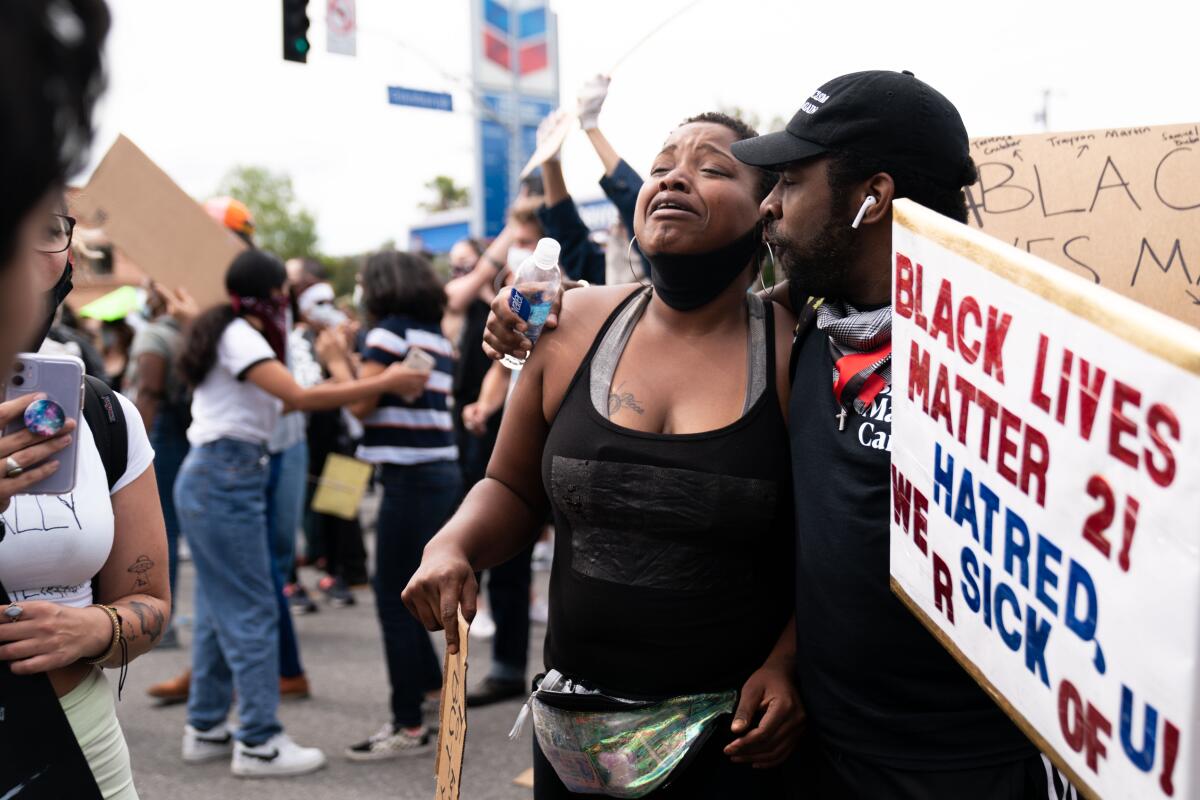
- Share via
As protesters — both peaceful and violent — took to the streets across Los Angeles County over the weekend to decry the death in Minneapolis of George Floyd, new concerns of a possible resurgence in coronavirus cases have emerged.
Public health officials continued to warn that the virus has not changed, despite eased restrictions allowing some businesses to reopen.
Political protests of up to 100 people are one of two types of mass gatherings allowed under the state’s updated shelter-in-place order and are also permitted under L.A. County’s latest guidance. But it’s still unclear how such gatherings could affect the transmission rate of COVID-19.
The weekend saw thousands gathered in places like Fairfax Avenue and downtown Santa Monica, both of which were the sites of widespread looting.
The coronavirus has claimed the lives of more than 2,300 people and has infected more than 55,000 in Los Angeles County, numbers that account for the bulk of California’s infections.
County officials on Monday reported 22 additional deaths, including a pregnant woman who had tested positive for the virus and had underlying health issues and a person who was incarcerated in a jail facility. Both deaths are the first of their kind in the county related to the coronavirus, health officials said.
Officials also reported an additional 978 cases.
Over the weekend, 73 deaths and more than 3,511 cases were recorded. Statewide, the total number of confirmed cases was approaching 113,000 on Monday, with nearly 4,200 deaths.
Black communities continue to bear the brunt of the virus’ impact. The disease has devastated the lives of black people at a higher rate than most other races, accounting for a disproportionate number of deaths, and has placed an incredible economic toll on workers who have lost jobs and hours.
It’s impossible not to connect this fact with the current protests and outrage, Public Health Director Barbara Ferrer said Monday.
She pointed to racism and unequal access to healthcare as a root case of the inequities that put a larger strain on minority communities, noting that the health issues in the black community can be attributed to a “lifetime of stress” connected with oppression and daily fears.
“When I report each week that we have seen elevated numbers of black deaths in this county due to COVID-19, I am reporting on the consequences of these long-standing inequities,” she said.
Ferrer reminded residents and protesters to wear face coverings and maintain social distancing as much as possible during demonstrations. While the county has seen modest improvements in the fight against the virus, it remains to be seen whether a new upward curve will occur in the coming weeks as more restrictions are eased — and in the wake of the disturbances over the weekend.
“I’m always worried about a surge,” Ferrer said.
The county declared a state of emergency late Saturday night as violence erupted after a day of protests. The previous day, officials had announced that hair salons, barbershops and restaurants could fully reopen for the first time since the start of the pandemic.
A countywide curfew was imposed Sunday, forcing many businesses to close early, some of whom had just reopened. The 6 p.m.-6 a.m. lockdown was extended Monday for a second day.
A third night of curfews followed days of massive, mostly peaceful protests to decry George Floyd’s death in Minneapolis.
“This emergency comes as we are in the midst of battling another emergency caused by the COVID-19 pandemic. This taxes our resources, but not our resolve,” Supervisor Kathryn Barger said in a statement.
“We will do everything in our power to keep our communities safe and protect lives and property. I continue to call on our residents to maintain calm and seek solutions productively, not destructively.”
Gov. Gavin Newsom echoed the sentiment Monday, calling racism “a stain on the history of this country that we have concealed.”
“We have never dealt with it,” he said, noting his support for those protesting peacefully.
While officials continue to encourage residents to get tested for COVID-19, several testing sites were closed Monday across the county in the wake of protests.
“Los Angeles County is in the midst of fighting an unprecedented pandemic while also facing a State of Emergency that impacts public safety,” L.A. County Department of Health Services Director Christina Ghaly said. “Public health remains a key concern, and testing remains a priority as we continue to battle the coronavirus. We need to ensure our testing sites are safe for both patients and staff.”
In the city of Los Angeles, testing at Dodger Stadium and Kedren Community Health Center will continue, while other locations are closed.
“We expect to reopen all test centers on Tuesday, June 2, 2020,” the city posted on its website.
To date, more than 598,000 of the county’s 10 million residents have been checked for the virus. Of those, 8% of people have tested positive.
Times staff writer Kailyn Brown contributed to this report.
More to Read
Sign up for Essential California
The most important California stories and recommendations in your inbox every morning.
You may occasionally receive promotional content from the Los Angeles Times.
